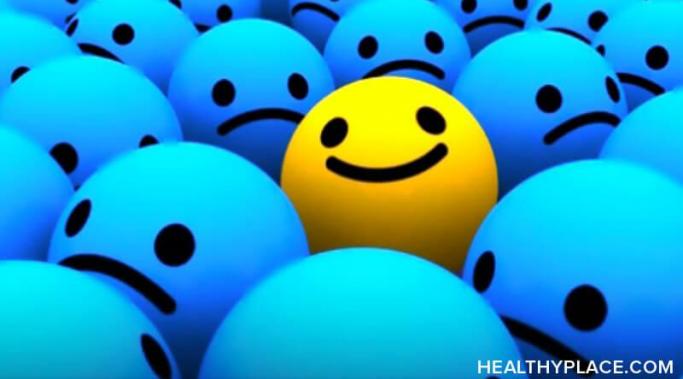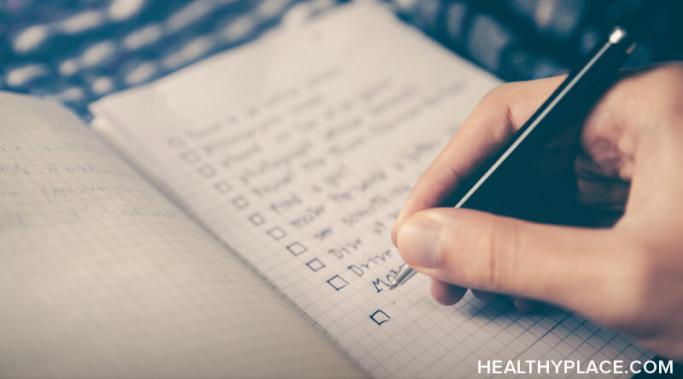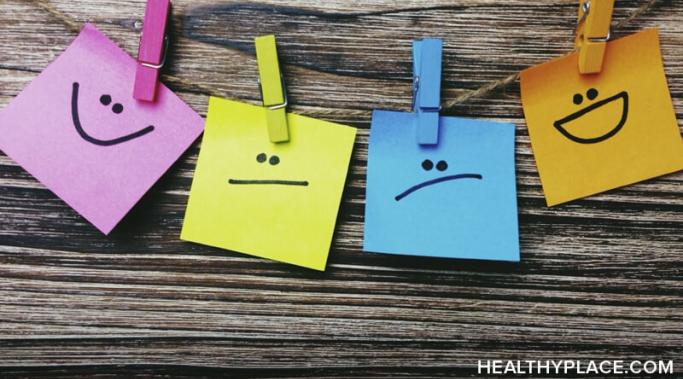I am a different person than I was before my mental illness. The year was 2004. I knew I needed help and my parents invited me home. My mental illness was paralyzing, and although I had big dreams, my life was at a standstill.
Embracing Mental Health Recovery
Self-acceptance in recovery and self-love in recovery are both great goals to strive for, but for people like me, with deep-seated self-loathing issues, self-love oftentimes feels far out of reach. That's why I'm learning to turn to self-acceptance in recovery.
Mental illnesses are devastating. Even when the dust settles after your initial diagnosis, it's hard to see how there can be anything positive about mental illness. However, recovery is full of surprises.
Bad mental health days hurt, in no small part because they make me feel so alone. It's hard for me to ask for help, but I'm trying to get better at it because it turns out, having some support can make a world of difference on bad mental health days.
There are five types of fear I associate with psychosis. Although, since my diagnosis 15 years ago, I have often been told that my illness doesn't define me, it's hard to separate myself from the types of fear psychosis brings out in me. Having schizoaffective disorder has had a huge impact on how I see and feel about the world around me, particularly when experiencing psychosis. My psychosis primarily consists of auditory and visual hallucinations which are sometimes terrifying. Experiencing hallucinations has felt differently pre- and post-diagnosis. Here are five different types of fear I've felt with psychosis. Good or bad, these fears have been an important part of my life story.
I typically use distress tolerance coping skills several times a week to get me through intense feelings that threaten to completely overwhelm me. In the past, I have tried to deny these feelings, as if I could will them away simply because I didn't like them, but I've recently learned that this approach can actually intensify distressing emotions. Now, I am learning to tolerate these emotions while they last, and encourage them to run their course through me. I'm realizing that even though this is uncomfortable and scary, it's typically quicker and less painful than trying to reject the emotions entirely. Everyone has different distress tolerance coping skills that work for them, but I thought I would share a few of mine in the hopes that they might be helpful for others as well.
Emotional resilience is very important to a person's wellbeing. It is a way to describe how well you mentally bounce back from upsetting situations and events. Resilience can be crucial in mental illness recovery where stress can aggravate symptoms. Being able to better handle stress improves stability.
The bullet journal is one of the best planners for people living with a mental illness, and I'll tell you why. Organization can be an incredibly important part of mental health recovery, and one of the best organizational systems for those of us with mental illness is the bullet journal. Basically, a bullet journal is a planner you create yourself using a blank notebook. This system allows for all kinds of organizational techniques, from the most colorful creativity to the most bare-bones minimalism.
You'll never know what you're truly capable of until you take risks and push yourself. This applies to everyone -- with or without a mental illness.
Is your habitual thinking helpful or unhelpful to your mental health recovery? Today, my therapist completely changed my approach to recovery, and even more importantly, she changed how I see myself and my decisions. With one simple question, she encouraged me to be more compassionate toward myself than I have been in years. I was explaining to her how I tend to get stuck in my mind whenever I feel I've failed or messed up because I sit and think about what I've done wrong, why, and why that makes me a terrible person. She asked, "Okay, but how does that help you?"









